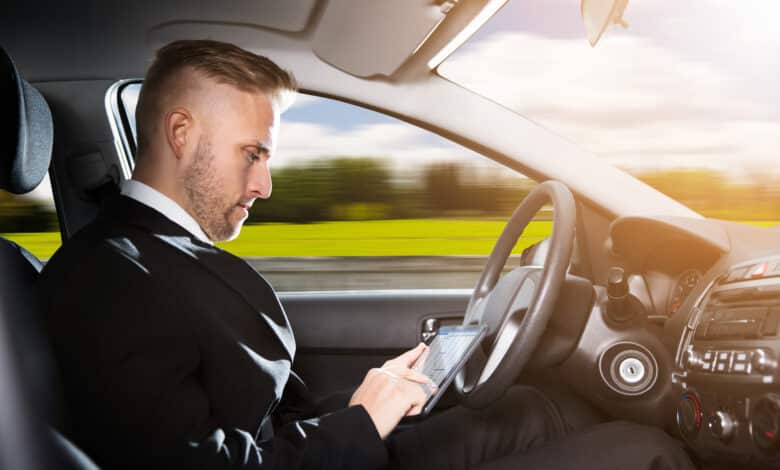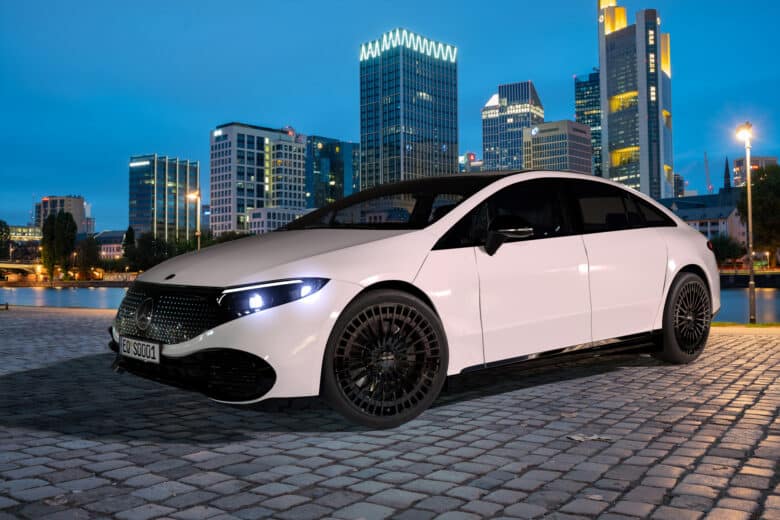
The dream of legally self-driving cars seems to be getting closer and closer. At least the relevant legal framework has been in place since January 1, 2023, enabling autonomous driving at speeds of up to 130 km/h. Now all that remains is to find a car that complies with the regulations.
Autonomous driving now possible much faster
One hurdle on the road to self-driving cars was the lack of a legal component. This meant that automotive developers could not orient themselves to any framework that would allow fast autonomous driving. This will come to an end at the turn of the year 2022/2023. As of January 1, 2023, regulations will apply that allow autonomous driving up to a maximum speed of 130 km/h. This means that, in theory at least, self-driving cars were not possible. At least in theory, self-driving cars were also permitted before then. However, this was not really useful. After all, the limit was previously 60 km/h. However, since autonomous driving is primarily of interest on long-distance journeys such as the highway or country road, it was hardly used. With the increase of the maximum speed, this could now change. However, the right vehicles are still lacking.
Germany takes its cue from UN regulation
The stone for the speed increase was set rolling by the UN Economic Commission. Cooperation among state representatives resulted in a UN regulation that provides for harmonization of vehicle regulations. Under it, member states could voluntarily agree to adopt the autonomous driving regulation. The regulation stipulates that light commercial vehicles as well as passenger cars will henceforth be allowed to drive autonomously up to a maximum speed of 130 km/h. As our colleagues at heise report, Germany has also agreed to implement the regulation. In theory, this provides the best conditions for autonomous driving. However, the right vehicles are currently still lacking. After all, the regulation is formulated very strictly for safety reasons.
In order to be allowed to use autonomous driving, the vehicle must be capable of Level 3 autonomous driving. Furthermore, it must be possible to deactivate the assistance systems at any time. Conversely, the vehicle must master the ability to inform its driver of a necessary takeover of control. The requirements for the vehicles are not the only ones that are strict. On top of that, the route must also meet requirements. It must be a road that is closed to both bicycles and pedestrians. Oncoming traffic must also be separated by a physical barrier. In this country, the autobahn meets these requirements. On rural roads, on the other hand, autonomous driving will thus not be possible for the time being.
Autonomous driving is a major goal of the industry
Of course, every automaker wants to place its self-driving cars on the market as quickly as possible. Globally, one traditional German company is ahead of the game – Mercedes Benz. The Stuttgart-based manufacturer had already made headlines in recent weeks for soon equipping its cars with an autonomous parking function. But autonomous driving as defined by the UN regulation is also unlikely to be long in coming. Back in August, the Stuttgart-based company announced that it was working on a Level 3 implementation for the S-Class and EQS that would enable autonomous driving up to 130 km/h. Both vehicles are the only ones in the world to support Level 3.

It will be a major concern for the traditional company to be the first manufacturer to offer autonomous driving on the German autobahn up to 130 km/h. However, Mercedes must first approach the Federal Motor Transport Authority. As part of an approval process, the latter must sign off that both vehicles comply with the legal requirement. In view of the new regulation and Mercedes’ imminent entry into serious autonomous driving, it will probably not be long before the competition also launches suitable models. Premium manufacturers like BMW in particular will not be denied this opportunity. In particular, the BMW 7-series available as either a combustion engine or an electric car could be a suitable counterpart to the Mercedes S-Class.




No replies yet
Neue Antworten laden...
Gehört zum Inventar
Beteilige dich an der Diskussion in der Basic Tutorials Community →